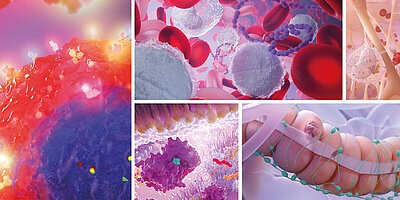Scientific Calendar November 2024
How does bacterial resistance really spread?
I hardly ever took antibiotics. Can I have an infection caused by bacteria resistant to antibiotics?
If my immune system was never exposed to a given antibiotic, I don’t need to worry about resistances to that drug.
I can only be infected by resistant bacteria after repeated treatments with one antibiotic. As this is not my case, this problem does not affect me.
Bacteria can develop and/or acquire resistance mechanisms and then infect other individuals, so I am also exposed to resistant bacterial strains.
I should only be concerned about resistance to antibiotics usually prescribed in my region. Resistance to other antibiotics is not relevant in my case.
Congratulations!
That's the correct answer!
Sorry! That´s not completely correct!
Please try again
Sorry! That's not the correct answer!
Please try again
Notice
Please select at least one answer
Scientific background
Antimicrobial resistance (AMR) is a well-known phenomenon and society is luckily more aware than ever of its consequences. While its consequences are clear, some misconceptions about the factors leading to AMR are still widespread.
Resistance mechanisms are natural tools of bacterial cells to adapt to changes in the environment and increase their survival possibilities. When antibiotics are used, bacteria use these tools to protect themselves against this exposure. Abuse of antibiotics accelerates the generation and spreading of resistances.
Interestingly, bacteria have developed efficient ways to share new resistance mechanisms with neighbouring cells by means of sharing part of their DNA. If you contract an infection caused by a bacterial strain with acquired resistance mechanisms, some antibiotics might not work in your case, even if you had never taken that particular antibiotic before. Resistance mechanisms are developed by bacteria, not by the host.



